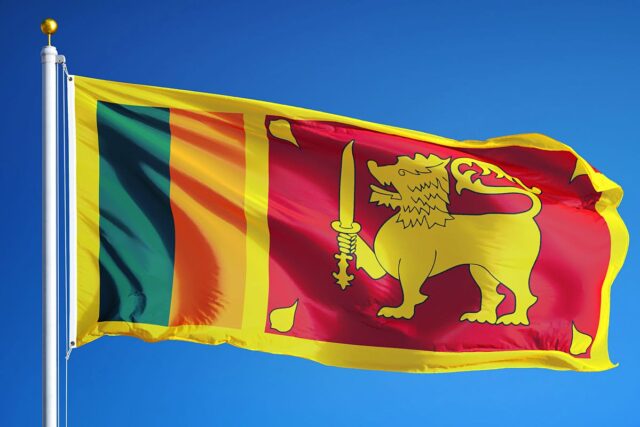Sri Lanka is reeling under one of the worst economic crises and is looking for short and long-term measures to tide over this crisis. Price of essential commodities has skyrocketed and is reported to be in short supply. It is expected that prices of items such as milk will only shoot up further in the coming days. Prices of crude oil have jumped by 88% compared to 2021. The Russia-Ukraine crisis is only making things worse for Colombo. Unable to cope with a steep surge in essential items, people at the bottom rung of the society are reported to be fleeing the island. A Reuters report says, there are sporadic incidents of violence over the scarcity of regular supplies. Army has been deployed outside petrol stations to prevent rioting.
The country has huge foreign debt, which has to be paid. Foreign earnings in recent months have dried up.
Sri Lanka, which is reeling under a Balance of Payment crisis, depends on China, Japan, India Asian Development Bank, and World Bank for its borrowings. It declared an emergency in August 2021.
Here we look at how the country reached this stage.
Heavy Foreign Borrowing: The ethnic conflict in Sri Lanka ended in 2009 and since then the government has been struggling to bring in fiscal discipline. The government resorted to taking loans and floating bonds to ensure forex reserve does not plummet. In 2018, Colombo borrowed $1 billion from China. Hambantota port was also leased out to China to strengthen its fiscal balance.
The pandemic in 2020 added to its economic troubles. Colombo had to borrow again from Beijing. This time was a $500 million loan. India has offered credit lines to supply essential commodities for buying essential items such as food, medicine, and fuel. In February this year, Lanka signed a $500 million credit line with India to import fuel.
Tourism Slowed Down: The island nation is heavily dependent on tourism for its earnings. Tourism’s contribution to Sri Lanka’s GDP is about 10%. Easter bombings in 2019 affected the inflow of tourists to the island. Tourism fell by 50% post the Easter attack. To make things worse, the Covid pandemic brought the sector to a grounding halt. Loss of revenue from the tourism sector put a lot of burden on the country’s forex reserves. According to an Asian Development Bank report, Sri Lanka’s earnings from Tourism dropped by $3 billion from January to August 2020 when compared with pre-pandemic earnings of 2018.
Dependency on Imports: Sri Lanka has to depend on imports for its essential supplies like fuel, milk, medicines, food, sugar, equipment, etc. The country needs foreign currency to buy these essential items.
Export Dwindled: Due to the pandemic, Sri Lankan export to China and EU countries dwindled, which reduced its foreign earnings.
Policy to Switch to Organic Farming went wrong: The country decided to ban the import of synthetic fertilizers and pesticides in 2020 and asked its 2 million farmers to switch to organic farming. Production of rice, which is the staple food, fell drastically. The country’s import bill went up as it had to procure rice from abroad to feed its population.
External Debt: Sri Lanka, which has been borrowing externally since 2005, has now piled a debt of $11.8 billion through international sovereign bonds (ISB). This comprises about 36.4% of its debt. Foreign Direct Investments (FDI) flow also slowed down in 2020, compared to the previous two years. FDI inflow in 2020 was only $548 million, compared to $793 million in 2019 and $1.6 billion in 2018.
Degrading Sri Lanka’s sovereign debt ratings by Agencies: As the Balance of Payment crisis persists for Sri Lanka, global rating agencies such as Fitch and Moody’s have downgraded the country’s sovereign debt, which will make borrowing even more difficult.
Colombo so far has refused to seek help from IMF. Seeking help from IMF would mean following directives from IMF to restructure their economy, which also includes having an independent central bank. Recently, their Finance Minister hinted that they are ready to work with IMF to manage the crisis.









